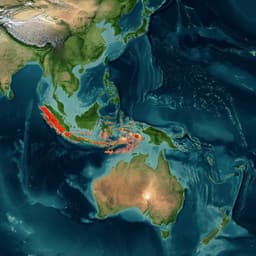
Environmental Studies and Forestry
Equatorward shift of the boreal summer intertropical convergence zone in Maritime Continent and the impacts on surface black carbon concentration and public health
T. Huang, Y. Gu, et al.
This study reveals a significant equatorward shift of the boreal summer ITCZ in the Maritime Continent, which affects black carbon concentration and public health. Conducted by Tao Huang, Yefu Gu, David Lallemant, Gabriel N. C. Lau, Joseph J. Y. Sung, and Steve H. L. Yim, it highlights the contrasting impacts on maritime and continental regions, emphasizing the need for climate-aware air pollution strategies.
Related Publications
Explore these studies to deepen your understanding of the subject.







